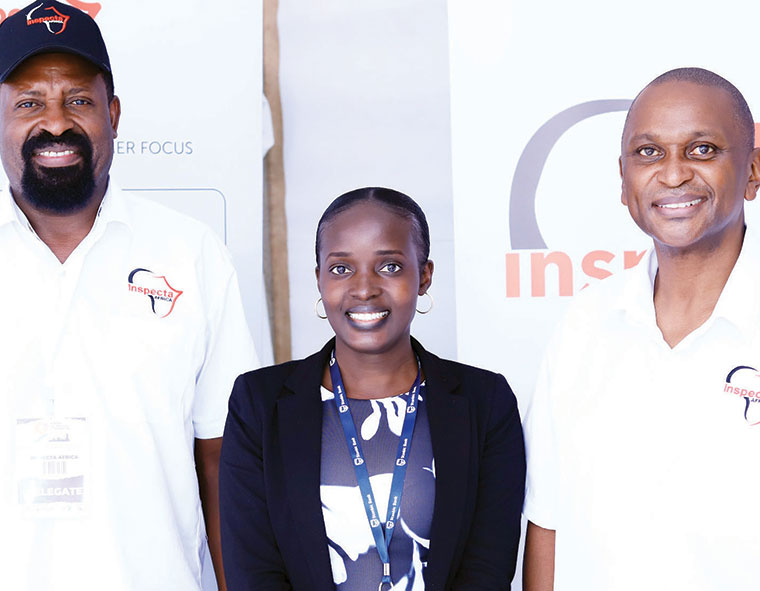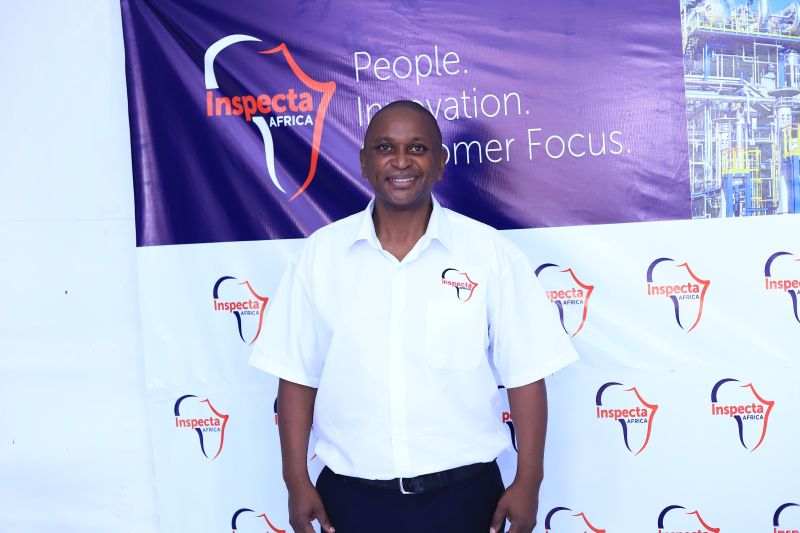For five challenging years, Nick Mugira, the founder and managing director of Inspecta Africa, pursued a vision that many considered unattainable.
It centred on Uganda’s budding oil and gas sector, an industry that was often slow to take off. In spite of earning just $8,000 (approximately Shs 30 million) during that period, Mugira persisted. His belief was that if he could gather the necessary certifications and experience, he could eventually position himself as a market leader in the inspection industry.
His belief was not misplaced. The first major breakthrough came after he attended the Stanbic Business Incubator’s Enterprise Development Program in 2018. Prior to this, Mugira had repeatedly bid for contracts without success, often missing out on opportunities by narrow margins
However, with the guidance and support from the facilitators at the Stanbic Business Incubator Limited (SBIL), he secured his first significant contract which was managing and maintaining the Jinja Fuel Storage Terminal. The Bidding and Proposal Writing sessions at the Incubator were instrumental in helping him craft a winning bid.
Founded in 2012, Inspecta Africa was born out of Mugira’s realization that there was a critical gap in inspections during the oil exploration phase. Although being a local company and initially without the necessary qualifications or certification, Mugira was determined to seek useful partnerships.
In this way, he could validate his company’s capabilities. He also reached out to a friend in Norway, who brought both experience and certifications, enabling Inspecta Africa to formally register and start operations. The training at SBIL was transformative. Mugira learned how to develop a business plan that was unique and relevant to his specific industry.
He was then paired with a business coach as part of the incubation and growth program. This coach, who was the Head of Treasury at Stanbic Bank and an FCCA (Fellow Chartered and Certified Accountant), provided invaluable guidance in proposal writing and preparing the company for its first contract.
Inspecta Africa’s journey emphasizes the importance of certification and proper documentation for Ugandan companies aiming to succeed in the oil and gas sector. Mugira and his team understood that these elements are not just formalities, but critical tools that build credibility and trust.

Following their first contract, they pursued certifications from the Lifting Engineers Association and the International Organization for Standardization (ISO), which further bolstered the company’s status.
Mugira said, “In the oil and gas sector, where experience is often limited for local companies, these certifications are crucial for gaining the confidence of expatriates and multinational companies that dominate the field.”
He advised Ugandan companies to at least obtain ISO 9001 certification as a baseline.
“While local content is important, it should not be the sole reason for winning contracts. Companies must demonstrate their capacity to compete on merit,” he said.
Mugira said certification and proper documentation provide a framework for credibility and excellence, ensuring consistent quality, building trust with customers and industry stakeholders, and helping businesses extend beyond national borders.
Inspecta Africa’s growth from a one-person operation to a company with over 50 employees, operating in Uganda, Tanzania, and Mozambique, is a testament to the power of perseverance, certification, and proper documentation.
The Stanbic Business Incubator played a pivotal role in this journey, providing the training, mentorship, and resources needed to succeed in a competitive industry.
The oil and gas sector in Uganda presents a significant opportunity, with an estimated $20 billion expected to be injected into the economy during the next 10 to 15 years. However, this opportunity will not come to those who wait passively. Mugira’s experience has taught him that local companies must actively position themselves to compete.
The sector is vast, with opportunities not only in technical fields but also in support services such as hospitality, property management, and supply chain management. Lyndah Kamasaka, the SBIL Programs Coordinator for the Supplier Development Program, which evolved from the Enterprise Development Program, highlights the incubator’s key focus areas.
These are access to markets, access to finance, and business operational skilling. All are essential for start-ups’ management and growth, particularly as they navigate the complexities of sectors like oil and gas. SBIL is one of the five business units of Stanbic Uganda Holdings Limited (SUHL), with Stanbic Bank as the anchor subsidiary.
The SBIL programs are designed to provide business development training and follow-up support interventions. The learning environment includes workshops, panel group discussions, networking events, access to subject matter experts, mentoring and coaching for entrepreneurs and an exposure visit to the oil fields.
These programs also offer avenues for accessing both markets and funds.
“We walk with the businesses all the way and we have seen many grow from ideation to fully participating in oil and gas,” Lyndah notes.
Initially developed in 2018, the Enterprise Development Program (EDP) supported 190 SMEs in Kampala, building their capacity to actively participate in Uganda’s rapidly growing oil and gas sector. Since then, SBIL has introduced additional programs to support small business owners across various economic sectors.
Among these are the Stanbic Accelerator Program (SAP) and the Supplier Development Program (SDP), both aimed at enhancing SMEs’ chances of accessing finance and becoming investment-ready. These programs are implemented in partnership with key players like UNOC, CNOOC, MTN, the Uganda Chamber of Mines and Petroleum, the Uganda Registration Services Bureau (URSB), Petroleum Authority of Uganda and Funding partners like NSSF and GIZ
The collaborative approach of SBIL’s programs aims to create social- economic impact by driving scale and supporting SMEs that enrol in these initiatives. For Ugandan MSMEs looking to participate in the oil and gas sector, Mugira’s story is a powerful reminder that success requires more than just a good idea.
It demands proper preparation, certification, and a willingness to seek out and seize opportunities. The oil and gas industry is a complex value chain with something for everyone, but only those who are prepared and well-positioned will be able to claim their piece of the cake.

